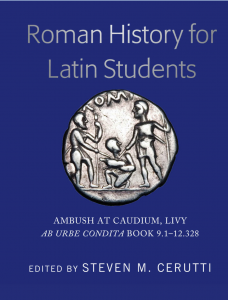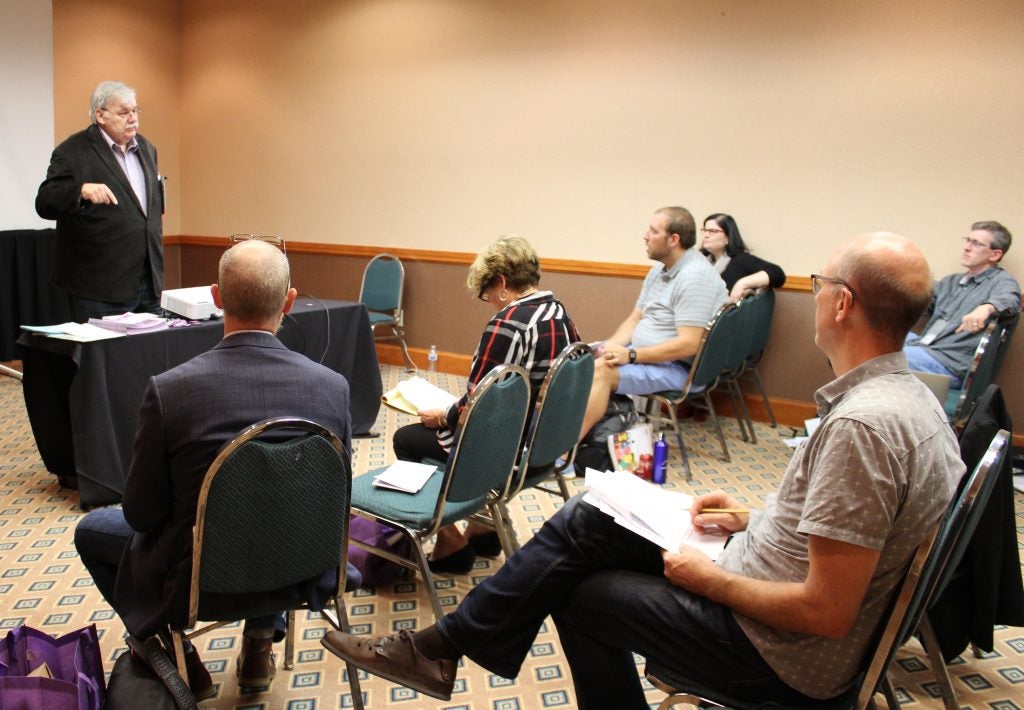Classics News & Events
Classics student named ΦΚΦ Outstanding Senior

Ashely Hunter
Ashley Hunter took a more unusual path to study at East Carolina University. She attended New Hanover high school, and within months of graduating, was sworn into the U.S. Army, boarding a bus for basic combat training. Stationed at Fort Bragg, she served as a human resource specialist and was deployed to Kuwait for eight months. While in the Army, she completed her associate’s degree, and after leaving the military, decided to attend ECU because of the university’s excellent support services to help veterans transition as students. Ashley began pursuing a major in anthropology and later added a second major in classical civilization and a third major in history. She wrote a paper for her Greek history course that won the department’s Papalas Ancient History Award. In the summer of 2019, she studied abroad with Dr. David Stewart in the Maritime Landscapes in Crete program, which focused on ancient seafaring throughout the Aegean from the Bronze Age to time of the Roman Empire. In the fall of 2019, Ashley conducted independent research on international relations in classical Greece, which she presented at the Phi Alpha Theta national convention in San Antonio. She wrote her senior thesis in history under the supervision of Dr. Oakley analyzing the rise of Julius Caesar during the 1st century BCE Rome Republic. Her paper, “The Spartan Way of Life,” was selected for publication in the 2019-2020 edition ofThe Lookout; and another paper, “The Things They Carried: Classical Greece Maritime Trade,” was accepted for presentation at the National Undergraduate Humanities Research Symposium. Ashley has been active on campus. She is a member of two honor societies: Phi Kappa Phi and Phi Alpha Theta. She volunteers with the Pirate Veterans Organization and the Veterans Leadership Academy. Last summer she assisted with the Veteran to Scholar Program under the direction of Dr. Anna Froula. In addition, she has volunteered with the Beare Garden Plantation Animal Rescue in Snow Hill, NC. After graduating, she plans to take a year to work and consider her options for graduate study. Ultimately, she plans to teach at a community college because there is a real need for ancient history professors at that level and she wants to encourage those students to continue their educations as she did.
Way to go, Ashley!
Cerutti publishes text & commentary
In the first twelve chapters of Book 9 of his Ab Urbe Condita, Livy tells the story of how, in 321 B.C., a young and untested Samnite commander named C. Pontius traps four Roman legions in the narrow mountain pass in the southern Apennines called the Caudine Forks. Stunned at his own success, he seeks the counsel of his father, who tells him that he must either let them go unscathed or slaughter them all to the man; there is no third option. For Pontius, however, turnabout is fairer play: long bristling under the jackboot of Roman saevitia et superbia, he decides to take this opportunity to inflict a little of his own. He frees the Romans, yes, but only after humiliating them by making them strip to their under-tunics and crawl beneath the yoke of the vanquished. What Pontius fails to realize is that the Romans will never suffer such indignation without answering with absolute reprisal. So, by his own foolish act of saevitia et superbia, Pontius guarantees the very outcome he was trying to avert: the destruction of his people and the ultimate hegemony of Rome throughout peninsular Italy.
This gripping story of Roman honor and fortitude under fire, at a time when Rome’s hegemony on the Italian peninsula was far from a foregone conclusion, is presented in Roman History for Latin Students: Ambush at Caudium, Livy Ab Urbe Condita Book 9.1–12.328 for the first time in a student-friendly edition, complete with Latin text (328 lines), a full vocabulary, and a comprehensive apparatus of notes on grammatical matters and rhetorical terms.

Classics faculty attend state conference

Romer mesmerizes Latin teachers with talk on the Roman calendar at the NCCA panel at FLANC. 10/26/2019
On Saturday Oct. 26, Classics professors Frank Romer (History) & Lisa Ellison (Foreign Languages & Literatures) attended the fall meeting of the North Carolina Classical Association, held during the annual Foreign Language Association of NC conference in Winston-Salem. There, Romer gave a 50-minute talk entitled Caesar’s Calendar or Augustus’? to an interested crowd of 15 or so secondary & college Latin teachers from across the state.
Other talks during the Classics panel were on using oral Latin for vocabulary acquisition and strategies for teaching reading skills. There was also a reading of a new rap-style translation of the Iliad followed by examples of activities to do with students for honing literary translation skills.